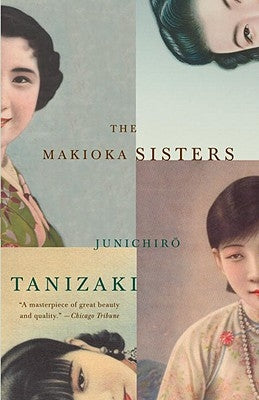Description
Junichirō Tanizaki's magisterial evocation of a proud Osaka family in decline during the years immediately before World War II is arguably the greatest Japanese novel of the twentieth century and a classic of international literature. Tsuruko, the eldest sister of the once-wealthy Makioka family, clings obstinately to the prestige of her family name even as her husband prepares to move their household to Tokyo, where that name means nothing. Sachiko compromises valiantly to secure the future of her younger sisters. The shy, unmarried Yukiko is a hostage to her family's exacting standards, while the spirited Taeko rebels by flinging herself into scandalous romantic alliances and dreaming of studying fashion design in France. Filled with vignettes of a vanishing way of life, The Makioka Sisters is a poignant yet unsparing portrait of a family--and an entire society--sliding into the abyss of modernity. It possesses in abundance the keen social insight and unabashed sensuality that distinguish Tanizaki as a master novelist.
Author: Junichiro Tanizaki
Publisher: Vintage
Published: 09/26/1995
Pages: 544
Binding Type: Paperback
Weight: 0.86lbs
Size: 8.00h x 5.32w x 0.94d
ISBN13: 9780679761648
ISBN10: 0679761640
BISAC Categories:
- Fiction | Literary
- Fiction | Family Life | General
- Fiction | Classics
Author: Junichiro Tanizaki
Publisher: Vintage
Published: 09/26/1995
Pages: 544
Binding Type: Paperback
Weight: 0.86lbs
Size: 8.00h x 5.32w x 0.94d
ISBN13: 9780679761648
ISBN10: 0679761640
BISAC Categories:
- Fiction | Literary
- Fiction | Family Life | General
- Fiction | Classics
About the Author
Junichiro Tanizaki was born in Tokyo in 1886 and lived there until the earthquake of 1923, when he moved to the Kyoto-Osaka region, the scene of his novel The Makioka Sisters (1943-48). Among his works are Naomi (1924), Some Prefer Nettles (1928), Quicksand (1930), Arrowroot (1931), A Portrait of Shunkin (1933), The Secret History of the Lord of Musashi (1935), modern versions of The Tale of Genji (1941, 1954, and 1965), Captain Shigemoto's Mother (1949), The Key (1956), and Diary of a Mad Old Man (1961). By 1930 he had gained such renown that an edition of his complete works was published, and he was awarded Japan's Imperial Prize in Literature in 1949. Tanizaki died in 1965.

